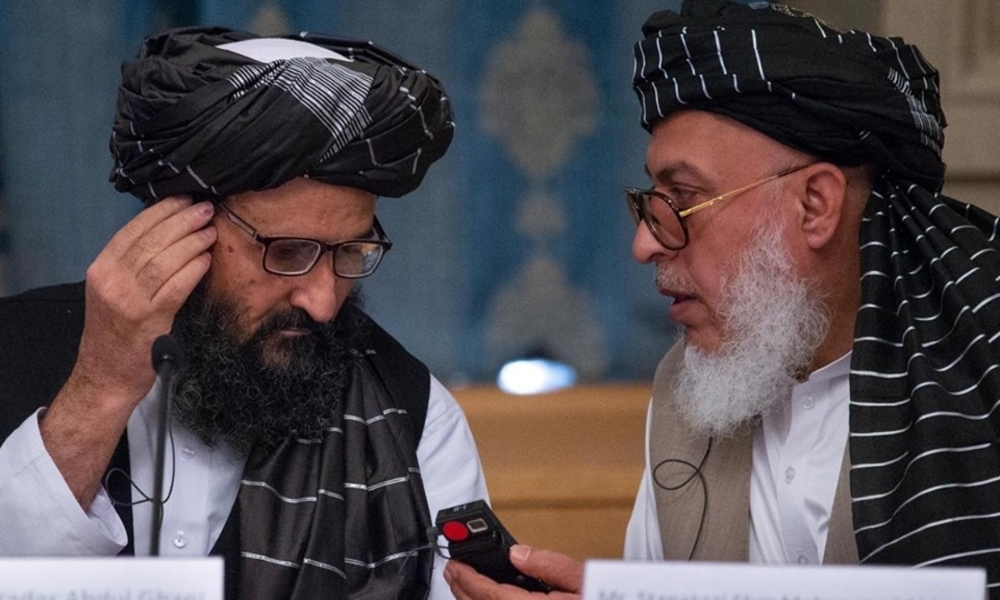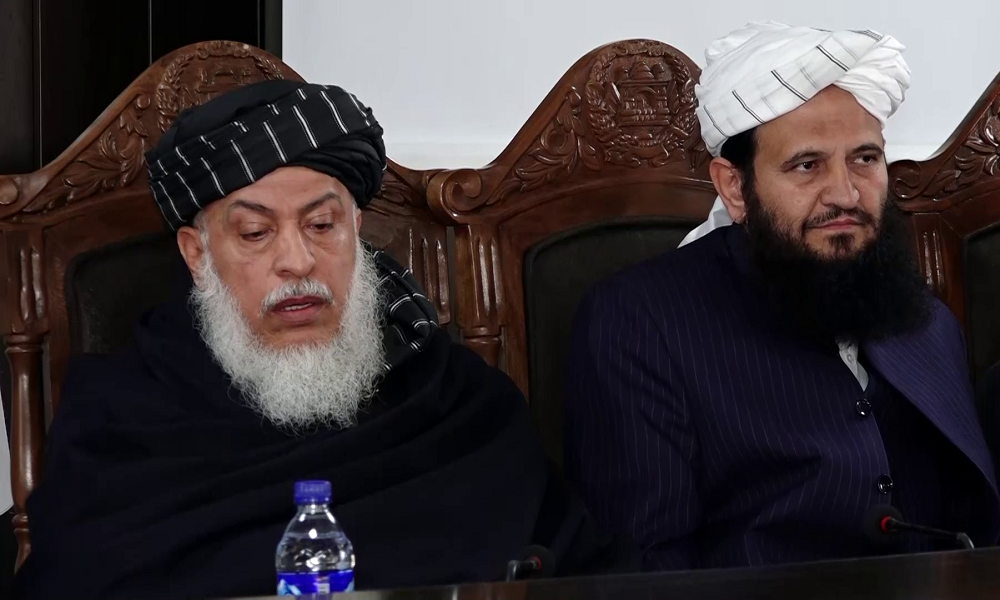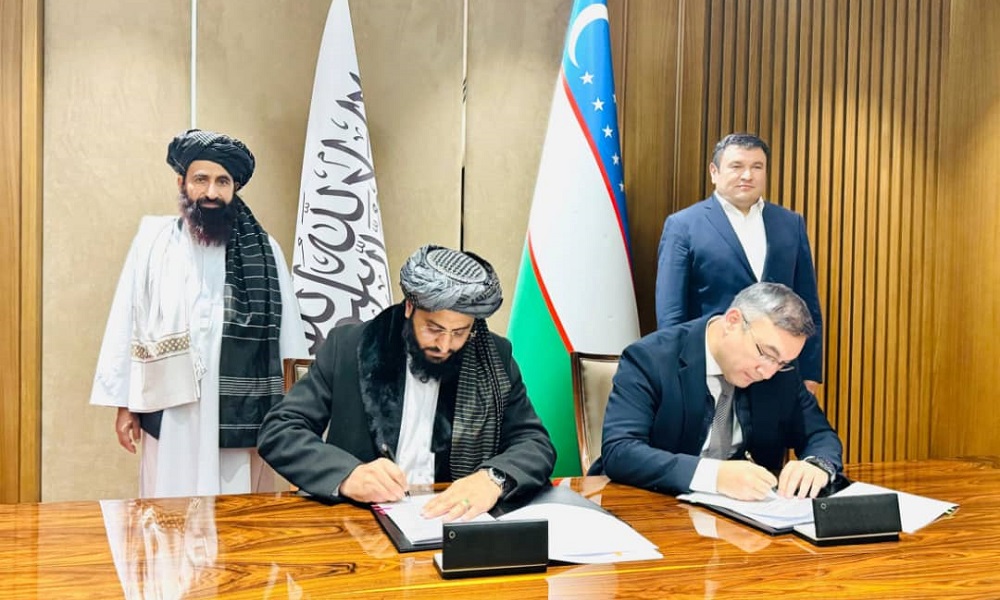Latest News
Taliban shows willing-signs to get along with India

Shir Mohammad Abbas Stanikzai, a prominent member of the political office the Taliban in Qatar, told Ariana News that as soon as Delhi contributed positively to the Afghan peace process, the Taliban were ready to get along.
Since the start of the talks between the United States and the Taliban in 2019, many countries, including Russia, China, Pakistan, Iran, and some Central Asian countries, have approached the Taliban representatives, except for India.
The United States has recently poked India to participate in the process. The Taliban have also welcomed it, saying it is conditional of a positive move by the India side.
Responding to the question 'if the Taliban were willing to talk to India as part of the US efforts', the group’s prominent member Stanikzai said, "We have no problem with anyone who wants to take a positive step towards peace in Afghanistan. Whenever they want to take a positive step in this regard, we are ready to talk with them for peace."
Zalmay Khalilzad, the US special representative for reconciliation in Afghanistan, has said India was an important element in Afghanistan’s peace process and would welcome its involvement in it
In the meantime, ThePrint, an Indian digital news platform, has written that it was not expected that the Narendra Modi administration would change its position and be directly part of Afghanistan's peace talks with the Taliban unless it derives from pressure by the United States.
It has quoted senior Indian officials as saying that New Delhi was willing to speak out if the Taliban recognized the democratic government – the Afghan government – and that the United States was now forcing India to take part in the Afghan peace talks.
An Afghan free journalist, Sami Yousufzai, who is mostly following the peace process and its events, believes that India is deeply concerned about the Taliban's return to the Afghan political system.
"It is a fact that during the Taliban regime, thousands of Kashmiri jihadist fighters were active in Afghanistan.” He has said noting that when the United States sought a guarantee from the Taliban that there would be no more room for al-Qaeda or other groups that pose a threat to the United States and the West, India also wanted to receive a commitment from the Taliban as such.
On the other hand, according to Yousufzai, Zalmay Khalilzad has tried to share India's concerns with the Taliban, which seems to be fruitful as a relationship seems to have taken birth between the Taliban and India.
The progress in the Afghan peace talks has shown that Pakistan has influence over the Taliban and is a key player in the process.
India, on the other hand, had no place in the process but has now made it clear that at the other end of the process – the Afghan government – it has a strong position in relation to the Ghani-led government.
Ahmad Saeedi, a former diplomat at the Afghan embassy in Pakistan, said that following the US-Taliban agreement, [India] was deeply concerned thinking that all the provisions of the agreement were in Pakistan's interest; therefore, Zalmay Khalilzad has been trying to seek India’s satisfaction to step into negotiations with the Taliban.
So far, India has not yet announced its will for direct talks with the Taliban; however, a point to be noted is that after meeting with Indian officials, Zalmay Khalilzad traveled to Pakistan and met with Qamar Bajwa, Pakistani army's chief of staff, to seek Islamabad’s support in speeding up starting the Intra-Afghan talks, reducing violence, and overall, to help take the Afghan peace process to next level.
Khalilzad travels to Qatar to meet with Taliban political representatives, following up on his agenda: the acceleration of government-Taliban prisoner releases, the immediate start of Intra-Afghan talks, the reduction of violence, the humanitarian ceasefire, and last but not the least, India's participation in the peace process.
Latest News
There should be no distance between media and government: Stanikzai

Sher Mohammad Abbas Stanikzai, the political deputy minister of foreign affairs, says media outlets should be supported in a way that there is no distance between them and the government.
Stanikzai, speaking at a seminar titled "The Role of Media in Strengthening the Islamic System" in Kabul, added that the media plays a crucial role in global propaganda wars, and it is necessary for the IEA to cease exerting pressure on the country's media and allow them to freely play their role in the development and prosperity of the country.
"The problems of the media should be heard, their voices should be heard, and the environment should be conducive for them to carry out their work freely,” he stated.
He further emphasized that the views towards the country's media should be such that both sides do not view each other as strangers, and the IEA should refrain from exerting pressure on the media and allow them to operate with freedom.
Meanwhile, officials from the Ministry of Information and Culture also stated at the seminar that they have not adopted an approach of confrontation with the media and that the ministry is committed to collaborating with them.
Participants in the seminar also urged the media to spare no effort in reflecting a positive image of Afghanistan to the world.
This seminar was held at a time the media considers itself committed to freedom of expression and reporting activities within the framework of national interests and Islamic values.
Latest News
DABS signs contract to purchase electricity from Uzbekistan for 2025

Da Afghanistan Breshna Sherkat (DABS) has announced that a contract for the purchase of electricity from Uzbekistan has been signed for the year 2025.
This agreement was signed following a visit by an Islamic Emirate delegation, led by DABS CEO Abdul Bari Omari to Tashkent, where they engaged in discussions with Uzbek officials.
"The General Director of Da Afghanistan Breshna Sherkat, along with a delegation, traveled to Uzbekistan and signed the electricity purchase agreement for 2025 during a meeting with officials from the Uzbek electricity sector,” said DABS spokesman Hekmatullah Maiwandi.
Meanwhile, some investors have urged IEA to engage with Uzbekistan regarding the 500-kilovolt electricity project and to ensure the swift completion of this project.
Once completed, the project is expected to alleviate some of the electricity shortages in the country.
Tajikistan agreement
Late last month, Tajikistan's national electric power company, Barqi Tojik, and DABS signed a similar agreement, which will see Tajikistan supply Afghanistan with power through 2025.
The signing ceremony was attended by Mahmadumar Asozoda, General Director of Barqi Tojik, Omar.
According to Barqi Tojik's press secretary, Kurbon Ahmadzoda, the agreement is expected to be extended annually until 2028.
However, the electricity export will reportedly be limited to the summer months, from May to September, and will be dependent on the availability of electricity within Tajikistan's domestic market, Tajik media reported at the time.
Powering a future
Afghanistan currently produces only 20% of its energy needs, while 80% of its electricity is imported from Uzbekistan, Tajikistan, Turkmenistan, and Iran.
The Islamic Emirate has however made it a priority to encourage domestic production of power since regaining control in August 2021.
Omar has met with potential investors on numerous occasions and has encouraged them to invest in the sector.
One such meeting was held in August with officials from Bayat Power.
Bayat Power is Afghanistan’s largest private Electric Power Production and Development Company and owns and operates Bayat Power-1, the first in a new generation of Gas to Electricity power generation plants.
Bayat Power is hoping to start work soon on Phase 2 of Bayat Power-1 in northern Jawzjan province in order to increase electricity production output for Afghanistan.
Mohammad Shoaib Sahibzada, the technical head of Bayat Power, has said that once Phase 2 is complete, electricity production will increase from 40 to 100 megawatts.
Sahibzada said Bayat Power's natural gas to electricity generation project will eventually produce up to 250 megawatts of electricity once Phase 3 is complete.
Bayat Power has produced over one billion kilowatt hours of electricity in just under five years after starting commercial operations in late 2019.
Sahibzada said that over the past five years, the company has also worked on capacity building of its technical employees.
Leading the way
Bayat Power is the first private company in 40 years to produce electricity from natural gas in the country and the multi-million dollar plant uses Siemens Energy’s SGT-A45 mobile gas turbine for its economic efficiency, flexible deployment, and power density.
Currently providing electricity to hundreds of thousands of end-users and generating more than 300 million kWh annually, the project was structured as an innovative public-private partnership between Bayat Power, Siemens Energy, and Afghanistan government entities such as the
Ministry of Mines and Petroleum, the Ministry of Energy and Water, and the General Directorate of Afghan Gas Corporation Company, Da Afghanistan Breshna Sherkat (DABS), and international partners.
The Bayat Group is the largest private investor in Afghanistan and Bayat Power is currently the only gas-powered plant in the country.
The Siemens Energy’s SGT-A45 mobile gas turbine used by the company is the only one in operation in the world.
Latest News
ATN’s hat-trick! Rights in place to broadcast ICC World Test Championship 2023/25 Final

Ariana Television and Radio Network (ATN) has done it again! This time it secured the rights to broadcast the ICC World Test Championship 2023/25 Final in Afghanistan.
The 2023–2025 ICC World Test Championship is an ongoing tournament of Test Cricket which is the third edition of the ICC World Test Championship.
This event started in June 2023 with The Ashes, which was contested between England and Australia. It will finish in June 2025 with the final match planned to be played at Lord's in London.
The tournament consists of 27 series and 69 matches in the league stage between nine countries. The top two teams in the points table will compete at the final.
Current State of Play
A draw this week in the third Test between Australia and India has spiced up the race to the World Test Championship Final especially as Australia and India continue to play catch-up with South Africa after the rain-truncated third Test in Brisbane ended in a stalemate.
South Africa had to dig deep against Sri Lanka recently, but a standout all-round performance helped them secure a series win and pushed them to the top of the standings, placing them as the front-runners for the WTC25 Final at Lord’s.
Alongside South Africa, Australia and India, Sri Lanka remains the only other team in contention for a WTC25 Final spot. However, they will need a string of favorable results - including a successful showing in their upcoming two-match series against Australia in January - to keep their hopes alive.
South Africa is top of the standings with a PCT of 63.33. They need to win one out of their two upcoming tests against Pakistan to reach their maiden ICC WTC final.
Australia and India are in second and third place respectively.
India has a PCT of 55.88 and two tests left, both of which they need to win to secure a place in the final.
Australia’s PCT is 58.89. After two tests against India. They have two more tests in Sri Lanka.
For cricket fans across the country, make sure you follow us on social media, and watch this spot, for updates and announcements on this event - along with other exciting tournaments coming up next year that Ariana Television will be bringing to you live and exclusively in Afghanistan.
-

 Latest News4 days ago
Latest News4 days agoAfghanistan seals T20I series victory over Zimbabwe
-

 World5 days ago
World5 days agoSyrian clerics in former Assad stronghold call for national unity, democracy
-

 Latest News4 days ago
Latest News4 days agoU.S. sentences Afghan man to 30 years in prison for narco-terrorism and witness tampering
-

 International Sports3 days ago
International Sports3 days agoMessi vs Ronaldo: A look at their market values over the years
-

 Latest News4 days ago
Latest News4 days agoInvestment in Afghanistan’s pharmaceutical sector reaches $300 million: Union
-

 Latest News4 days ago
Latest News4 days agoChinese, Tajik officials discuss Afghanistan
-

 Sport4 days ago
Sport4 days agoAfghanistan’s Gulbaddin Naib fined 15% of match fee for dissent
-

 Regional4 days ago
Regional4 days agoHezbollah chief says group lost its supply route through Syria
























